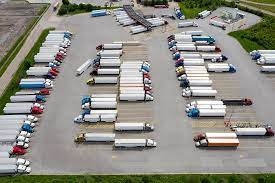BUSINESS &ECOMONY

NEW PETROL TAX MAY FETCH FG N796BN ANNUALLY – BUT NIGERIANS COULD PAY THE PRICE
FG to Earn N796 Billion Yearly from New Petrol Surcharge, but Marketers Warn of Rising Fuel Prices
The Nigerian government is projected to generate N796 billion every year from a new 5% surcharge on petrol and other fossil fuels, based on recently signed tax legislation.
The surcharge, part of the Nigeria Tax Administration Act, is set to take effect from January 1, 2026, and applies to both locally produced and imported fuel, including diesel, aviation fuel, and more. However, household kerosene, cooking gas, and compressed natural gas (CNG) are exempt.
The new tax is one of four laws President Bola Ahmed Tinubu signed into effect on June 26, 2025, aimed at boosting revenue through a revised fiscal framework.
According to an analysis based on 2024 fuel consumption data from the Nigerian Midstream and Downstream Petroleum Regulatory Authority (NMDPRA), Nigerians consumed 18.75 billion litres of petrol last year. With an average pump price of N850 per litre, that totals N15.93 trillion in petrol sales, and 5% of that equals N796 billion in potential government earnings.
But the plan is not without controversy. Fuel marketers have expressed strong opposition, warning that the new levy could drive up pump prices and worsen the current economic strain on Nigerians.
Chinedu Ukadike, spokesperson for the Independent Petroleum Marketers Association of Nigeria (IPMAN), stressed that marketers cannot absorb the extra cost, meaning consumers will ultimately pay more at the pump.
“Any additional levy will reflect on the price of petrol across Nigeria. Marketers cannot absorb the additional burden,” Ukadike said.
As of July 30, 2025, petrol prices across Lagos and Abuja ranged between N865 and N905 per litre at major filling stations, including NNPC, MRS, AA Rano, Optima, and others. The surcharge could push those prices even higher in 2026.
While the government looks to boost revenue, many Nigerians are left wondering: how much more can they afford to pay for fuel?
"This represents a significant development in our ongoing coverage of current events."— Editorial Board









